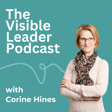
Philippa Kindon: Is it possible to manage without managers?
Philippa Kindon and the team at Mayden think so and they've captured their journey of creating a self-managing workplace in their recent co-authored book, 'Made without Managers'.
Mayden is a 140-person strong health-tech company based in Bath, providing market-leading software to NHS Mental Health Trusts, charities and third-sector providers. Mayden takes an agile and self-managing approach, having broken free from traditional people hierarchies and instead is organised around teams that manage themselves and their work.
The team at Mayden wanted to share their stories, not because they think they've got this way of working all right, but rather because they want to provide examples of how it can work, and also give a real account of some of the challenges.
A lifelong student of organisational behaviour, Philippa earned her PhD from the School of Management at the University of Bath with research into identity in the workplace. Passionate about people at work, she believes that everyone deserves to be happy in their work. Not the lighthearted laugh-at-a-film surface-level happiness, but a deep, fulfilling sense of purpose and joy through connection to a meaningful endeavour.
Philippa's role at Mayden spans business development, innovation, coaching and championing self-managing ways of working.
Topics include:
- What was the problem that Mayden wanted to solve with self-managing teams?
- How Mayden was able to take ways of working from software development and apply them to the entire organisation
- How career growth and progression work in self-managed teams
- Does self-management mean there are no hierarchies?
- How do work-placed investigations progress in a managerless organisation? What about interpersonal conflicts?
- Did the Mayden team face surprises or objections?
Connect with me on LinkedIn
Visit Visibly Different
Read Made Without Managers: One Company's Story of Creating a Self-Managing Workplace
Visit Mayden
Read A Brief History of the Agile Methodology (InfoWorld)
Edited by Steve Woodward at podcastingeditor.com
